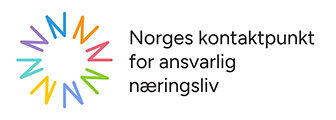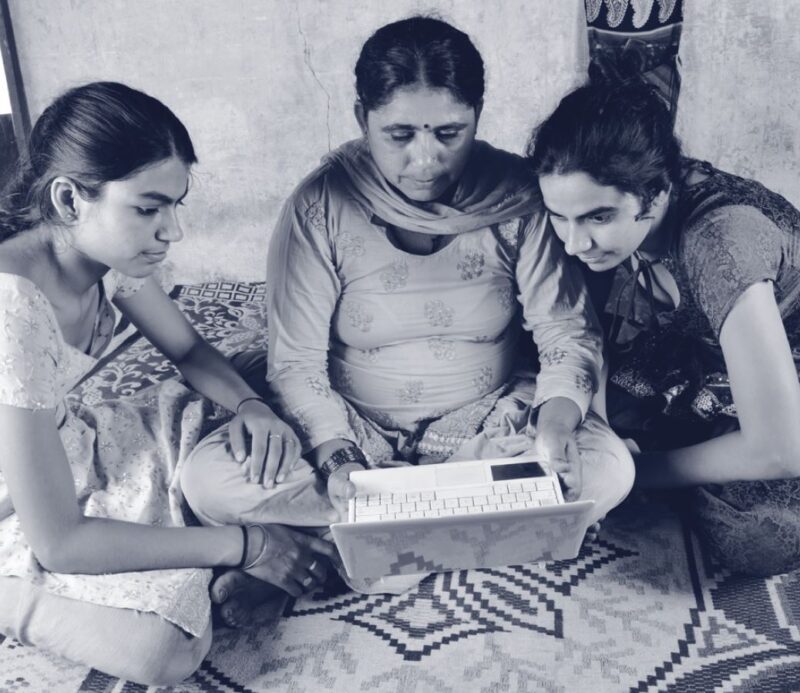Promoting and providing guidance about the OECD Guidelines
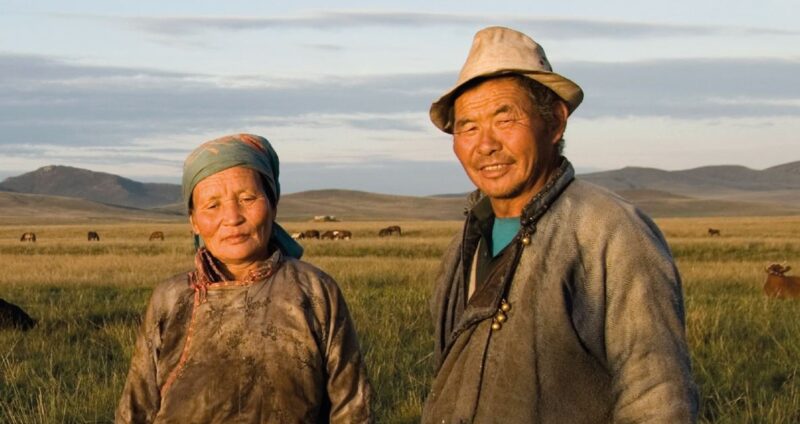
Promoting and providing guidance about the OECD Guidelines
One of the NCP’s most important tasks is to promote the OECD’s Guidelines for Multinational Enterprises as an effective tool for preventing violations.
The Guidelines are more than just words. They are a practical tool that can prevent Norwegian companies from making the wrong decisions in meetings
with people, society and the environment in other countries.
Norway’s NCP carries out extensive information work and provides guidance to Norwegian businesses and other stakeholders on how they can meet the requirements of the OECD Guidelines, including through due diligence courses and sectorspecific guidance.
In all new projects, Scatec Solar has a dedicated budget line for due diligence. This is no different from having a budget line for the purchase of cables or hiring workers.
TEXT: Marianne Alfsen, Felix Media.
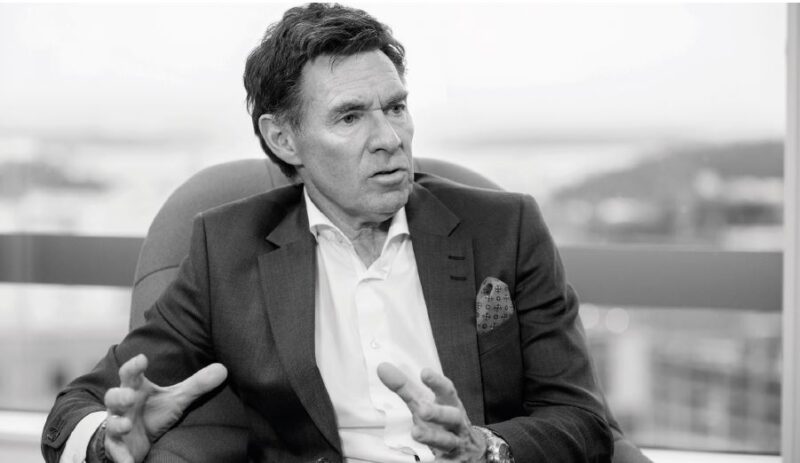
Roar Haugland, Executive Vice President of Scatec Solar
Scatec Solar builds and operates solar parks in emerging markets; countries where the economy is growing rapidly and the demand for clean energy is high. The downside is that the political and social framework in these countries can be challenging.
‘It’s not about appearances. A structured approach to risk-based due diligence is crucial for profitability,’ says Roar Haugland, Executive Vice President for Sustainable Business & HSSE in Scatec Solar. The Norwegian entrepreneurial venture has delivered 20 projects in nine countries across four continents.
Ten years ago, work on the first solar park began in South Africa. Everything seemed to be in place. The planned solar park affected neither the environment nor the water supply. Political and economic conditions were stable. They were all set to get started.
However, they had not taken into account the rampant social challenges and high unemployment rates in the local community from where they had recruited almost 1,000 workers. Lacking a systematic approach to due diligence, the challenges came as a surprise and the handling was ad-hoc. That has now changed.
‘This was our first, large solar project on a new continent and in a new culture. We were not properly prepared for the task. The learning curve was steep, but we landed on our feet. We had excellent local partners and learned a lot,’ Haugland says.
The good cynicism
Even to a company with a vision to improve the future, there is an element of cynicism to due diligence efforts.
‘It all comes down to profitability and minimising risk,’ according to Haugland.
What has changed since it all began in South Africa in 2010 is that the list of risks being considered is longer. Previously, political and economic conditions dominated. Now, the environment, human rights and a broad spectrum of social conditions are equally important. And there is a system in place to handle them all.
The company’s projects are funded by, among others, Norfund and international investment banks. They all have strict due diligence demands, in line with the standards of the World Bank’s investment branch, the IFC. Although Scatec Solar has built a robust system, it does not mean unforeseen challenges never occur.
‘The difference is that we now have a follow-up method,’ says Haugland. Such as in Honduras.
Violent demonstrations
In 2018, Scatec Solar took over a project from a Spanish developer in Honduras – a country marred by violence and corruption. As construction was about to begin, the widespread unease among the local population became apparent, especially in areas Scatec Solar did not consider to be part of the solar park’s immediate surroundings.
The initial peaceful protests soon turned confrontational and even violent. The protesters demanded answers. There were stories of how the solar plant could cause cancer and that the local temperature would increase by ten degrees Celsius. Others felt left out, because the social outreach programmes did not include their village. ‘We were not up to speed and should have dug deeper before taking over the project,’ admits Haugland.
No shame in turning back
He emphasises that sometimes you need to pull the emergency brake, even if it will be costly.
‘In Honduras, we could not continue unless we picked up the dialogue and mapped the situation once again,’ says Haugland.
First, the company employed more community liaison officers on the ground and contacted local leaders. They set up neutral meeting places and invited people from the local communities to dialogue. For the perpetrators of violence, where the company had no choice but to initiate legal proceedings, they also found solutions. They offered reconciliation agreements and waived all charges against those who signed.
‘We even offered some of them a job, and many still work at the plant. Nine cases remain, but we are in dialogue to resolve them,’ says Haugland.
Never-ending work
‘Due diligence is not a one-time affair, and then you are done with it,’ Haugland points out. When the Honduras situation was at its worst, Scatec Solar did not know that the Norway’s National Contact Point offers advice and facilitates mediation, even if there is no official complaint. ‘It would have been useful to have someone to bounce ideas off,’ says Haugland.
To those who believe small and medium sized businesses do not have the financial muscle to conduct due diligence to the same extent as larger businesses, Haugland has one message: ‘Size is not an issue. We all benefit from reducing the risks
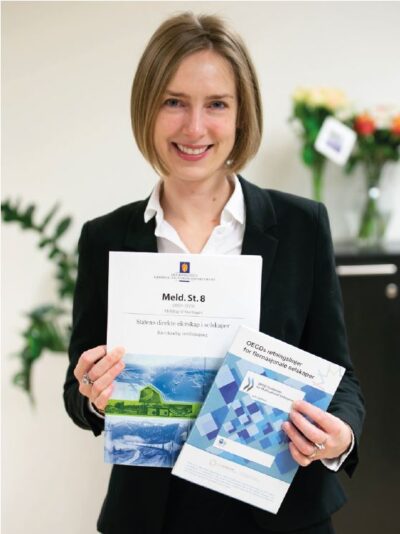 On 22 November 2019, the Government presented Report No 8 to the Storting (2019-2020) The state’s direct ownership of companies – Sustainable value creation. The new white paper on state ownership policy states that the goal of the highest possible return over time requires companies to demonstrate sustainability and responsible business conduct. We asked the Minster of Trade and Industry what the expectations in the new white paper entail.
On 22 November 2019, the Government presented Report No 8 to the Storting (2019-2020) The state’s direct ownership of companies – Sustainable value creation. The new white paper on state ownership policy states that the goal of the highest possible return over time requires companies to demonstrate sustainability and responsible business conduct. We asked the Minster of Trade and Industry what the expectations in the new white paper entail.
The state has high ambitions for companies’ work on responsible business conduct. The companies are expected to be at the forefront of this work. What does that entail?
‘The expectations set out in the white paper on state ownership policy are principles intended to support companies in creating long-term value in a responsible way. It is only natural that state-owned companies are subject to high expectations in terms of their work on responsible business conduct. There are several reasons for this, including that it helps to boost confidence in and the legitimacy of state-owned companies, and that it is a prerequisite for long-term value creation. We believe that the companies leading the field are characterised by being able to identify and deal with material risk areas for those affected by their activities, including in the supply chain. The leading companies have the support of the board of directors in this work and integrate it in the company’s goals, strategies and guidelines. The OECD Guidelines for Multinational Enterprises and the UN Guiding Principles on Business and Human Rights form the basis for this work.
‘Companies are expected to perform due diligence. Why is this important and how can the companies use the OECD guidance documents to this end?’
‘Due diligence is the method that both the OECD and the UN endorse for companies to identify, deal with, reduce and report risks that the company’s activities may represent for people, society and the environment. These are the same circumstances that the state as owner is concerned with and that Norway has undertaken to promote. The OECD has also done a thorough job of preparing a guidance document on how companies can conduct due diligence. The method takes a risk-based approach that means it can be used by all companies regardless or their size and the risks they represent. This is important to the state as owner since it has many different kinds of companies in its portfolio.’
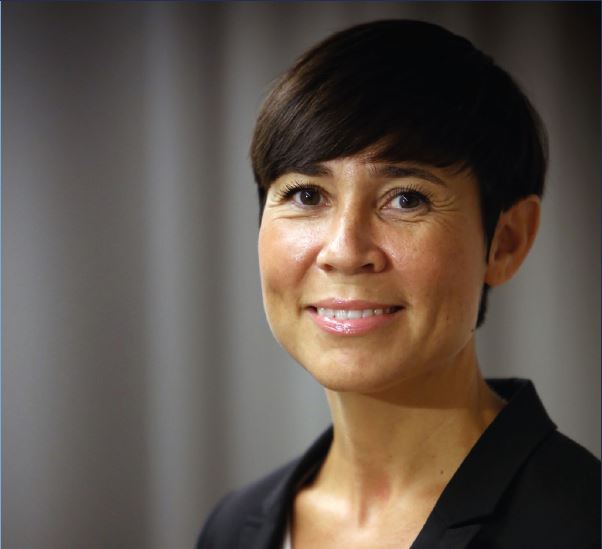
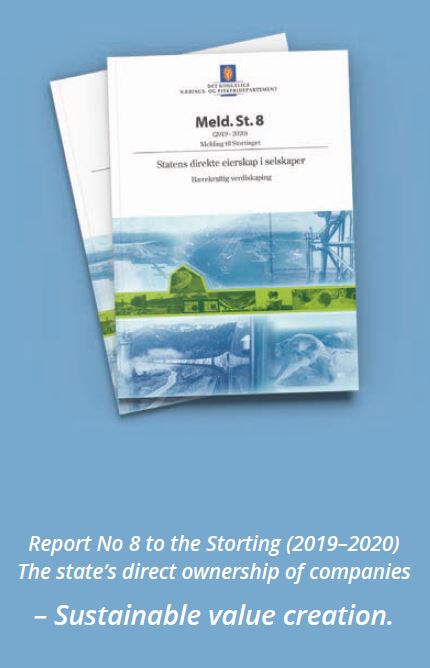
Three important messages concerning responsible business conduct in the White Paper on Ownership Policy:
- Norwegian state-owned companies shall lead the field in their work on responsible business conduct.
- The goal of the highest possible return over time requires the companies to demonstrate sustainability and responsiblebusiness conduct.
- The OECD Guidelines for Multinational Enterprises are the most extensive set of guidelines for multinational enterprises available. They also incorporate the UN Guiding Principles on Business and Human Rights and ILO’s core conventions– as well as the principle that companiesmust perform due diligence.
Course in responsible business conduct and due diligence
Educating businesses for a responsible future
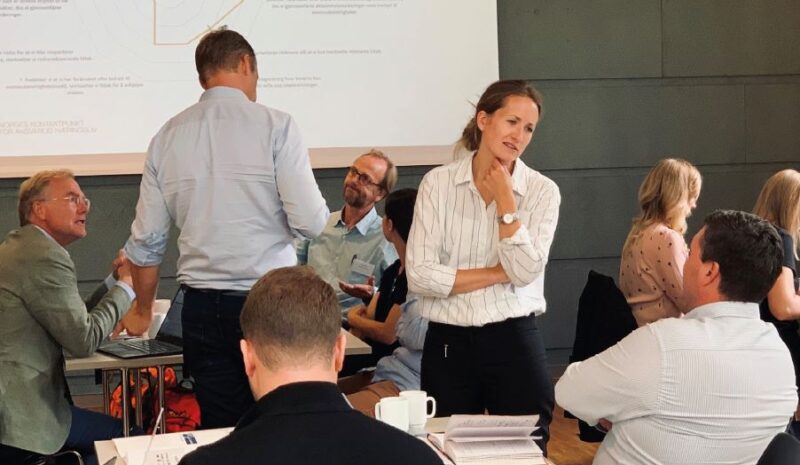
What is responsible business conduct and what does it mean in practice? This is what businesses taking the NCP’s popular course on responsible business conduct and due diligence will learn more about.
The course runs over three days and is suited to all types of enterprises with international activities, regardless of their size and the sector they operate in.
The purpose of the course is to help the participants to get started or prepare the work on mapping and handling risks internally in the business and externally in the supply chain and with business associates.
The course consists of both theory and practice. The participants learn about the governing international standards for responsible business conduct, such as the OECD Guidelines for Multinational Enterprises, the necessity of stakeholder engagement and the due diligence method. The participants work actively with this method using the NCP’s tool, the RBC Compass, with help from the external advisers. The attending businesses share their experiences and explain how they work on responsible business conduct in practice.
Norway’s NCP ran two courses in 2019. So far, 61 businesses and more than 100 people have participated in the five courses the NCP has held to date. Norway’s NCP ran two courses in 2019. So far, 61 businesses and more than 100 people have participated in the five courses the NCP has held to date.
 Knud Nørve, member of the board, Juralco AS
Knud Nørve, member of the board, Juralco AS
‘The course was very helpful and well organised by the NCP. The course organiser and the guest lecturers gave us a good understanding of the OECD Guidelines and which duties we are subject to, including in relation to our suppliers. We also received a thorough introduction to the guidance document, which provides good advice on how to conduct due diligence.’
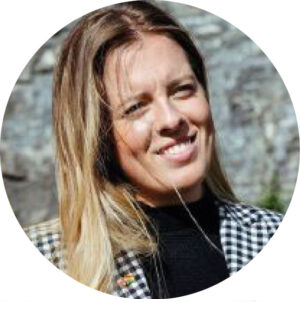 Brita Bergland, CSR Advisor, Aker Energy AS
Brita Bergland, CSR Advisor, Aker Energy AS
‘For a relatively new company like Aker Energy, the course was useful because we learned about how other companies work on strategic risk management. The network we gained through the course came in handy when we were to conduct our first materiality analysis for the company’s sustainability strategy: We asked participants from the financial sector to provide input on how they assessed the company’s ESG profile.’
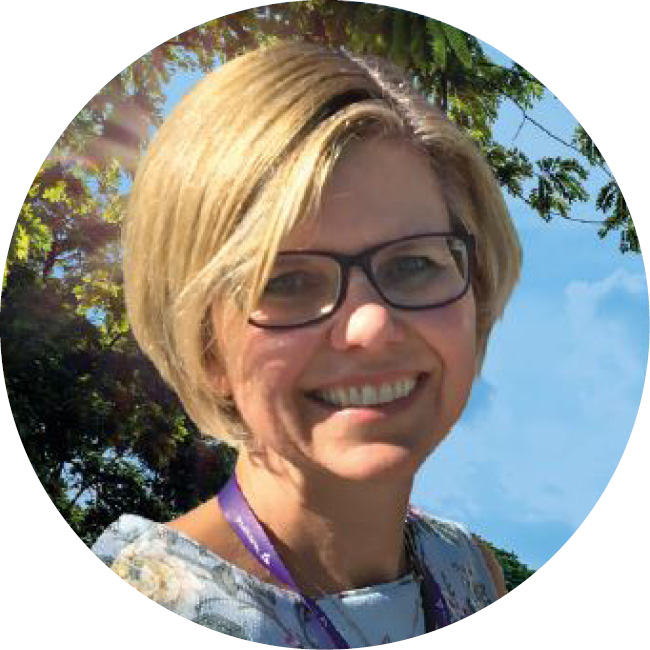 Kristina Hesjedal Schnell, Risk Manager Norway, TechnipFMC
Kristina Hesjedal Schnell, Risk Manager Norway, TechnipFMC
‘The NCP’s course was both educational and interesting, with varied and helpful presentations. We have learned a lot about the Guidelines, gained a new network and received useful tips on how we can continue our work on sustainability in the company.’
Workshops, Seminars and Events
Challenges related to the rights of the Sami people in connection with wind power and mining developments were the topics discussed at a seminar in Karasjok organised by the Norwegian National Human Rights Institution (NIM) and Norway’s NCP.
Industrial development in indigenous communities raises a number of human rights questions. As an indigenous people, the Sami can be particularly hard-hit by wind power and mining development because the activities can have a detrimental effect on the natural basis for the Sami people’s traditional sources of livelihood, such as reindeer herding and fishing.
At the seminar, representatives from businesses and the Sami community discussed their experiences of conflicts and dialogue concerning business development projects. The NCP and NIM explained what kinds of requirements and international standards businesses are expected to comply with in order to demonstrate responsible business conduct and respect indigenous rights. This was the first time a national human rights organisation and an OECD NCP had co-hosted an event in an indigenous community.
Two specific cases were discussed at the seminar: the ongoing case concerning the Nussir mine in Kvalsun municipality and the case that has been handled by the NCP concerning Statkraft and SSVAB’s wind power development in Jinjievaerie Sami village in Northern Sweden.
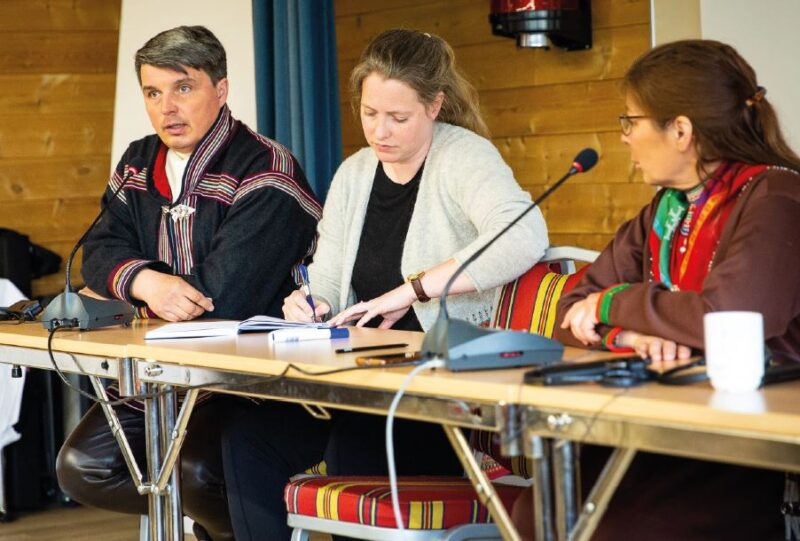
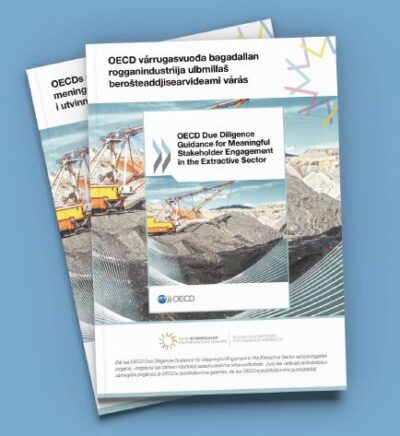
OECD Due Diligence Guidance for Meaningful
Stakeholder Engagement in the Extractive Sector

‘The seminar demonstrated NIM and the NCP’s important roles in promoting dialogue between businesses, public authorities and the Sami people about human rights issues, as well as providing advice and guidance on how to resolve conflicts when they arise.’Adele Matheson Mestad, direktør, NIM
dss-hi
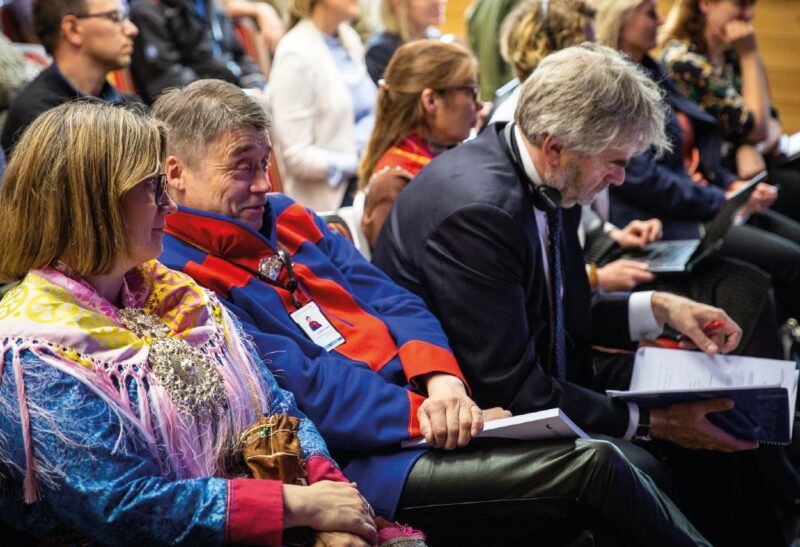
The Ownership Department at the Ministry of Trade, Industry and Fisheries, Norway’s NCP and Ethical Trade Norway collaborated on a topical seminar held in 2019 concerning responsible business conduct and due diligence for state-owned companies. The Ownership Department at the Ministry of Trade, Industry and Fisheries, Norway’s NCP and Ethical Trade Norway collaborated on a topical seminar held in 2019 concerning responsible business conduct and due diligence for state-owned companies. The Ownership Department described how the OECD’s method has now become a recommended standard for businesses as regards responsible conduct and due diligence. The participants represented 30–40 key state-owned companies. Chair of the NCP Frode Elgesem provided an introduction to responsible business conduct and the OECD’s Due Diligence Guidance. Specific examples from a company were presented and the various state-owned companies shared their experience with one another. Representatives from civil society took part in a panel debate about how civil society can contribute to companies’ work on due diligence and stakeholder engagement with, for example, affected local community groups.
Flytoget was one of the companies that participated and that contacted the NCP after the course for more specific guidance on due diligence.
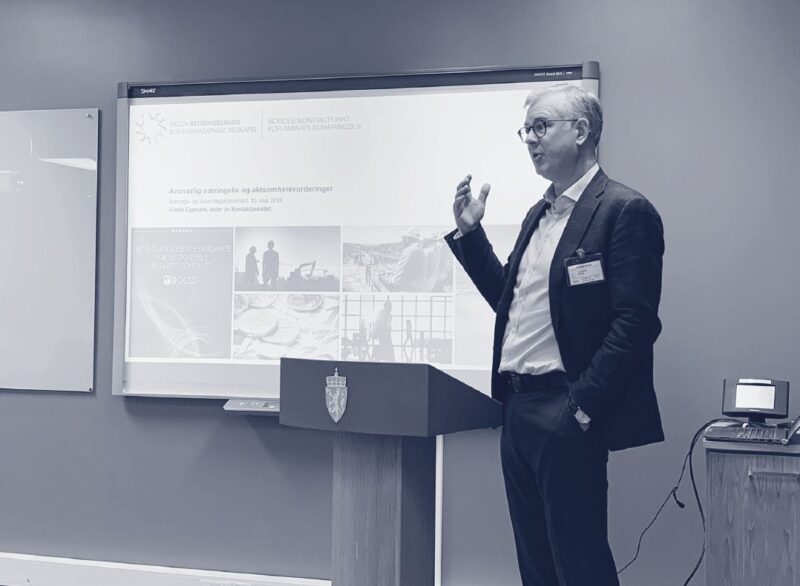
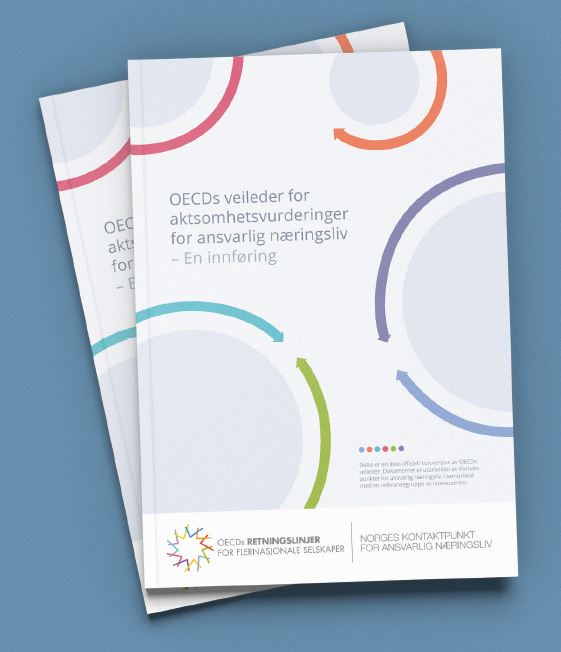
‘The seminar held at the Ministry of Trade, Industry and Fisheries sparked an interest and motivation to learn more about the OECD’s definition of due diligence. With the help of the NCP’s guidance document, the company’s threshold for conducting due diligence has been lowered. The guidance is of such high quality, both in an educational and professional sense, that the job became much easier. For Flytoget, the process led to us preparing responsible business guidelines, which are endorsed by the management and board. The guidelines will become part of Flytoget’s business governance.’

Åge Pedersen, Head of Administration, Flytoget
The NCP organises an annual dialogue meeting in connection with the launch of the annual report. The Confederation of Norwegian Enterprise (NHO), ForUM, IndustriALL and Cermaq provided valuable insight into the NCP’s work.
The NHO, ForUM and Cermaq all underlined the importance of the NCP’s guidance for business and industry, and emphasised in particular the Norwegian introductory document to the OECD Due Diligence Guidance and the NCP’s RBC Compass as useful tools. Katarina Sætersdal (NHO) expressed a wish for closer cooperation with the NCP and underlined the importance of the NCP’s presence at pre-departure meetings for business delegates. She also asked what guidance the foreign service missions could potentially contribute in relation to responsible business conduct. Atle Høie (IndustriAll) emphasised the need for holding the big international companies accountable. ‘Pay and working conditions get worse the further you go down the supply chain. Many international companies fail to acknowledge their responsibility for this,’ said Høie. He underlines that respecting labour rights and ensuring workers are heard through collective bargaining are decisive elements of improving working conditions in the supply chain. Ingrid Rostad (ForUM) was clear that the NCP’s grievance mechanism provides a unique opportunity to have a case reviewed, and that it is important as a deterrent factor.
Elgesem thanked the participants for their input on the NCP’s work, which particularly concerned the grievance mechanism, labour rights and the supply chain, and on the NCP’s courses and training. He also said that, when it comes to the right to file a complaint, it is important that it is not perceived as a provocation, and that the NCP has faith in the parties’ ability to resolve the situation through mediation. To achieve compliance with the Guidelines, it is nonetheless essential that the right to complain exists and is actively used. The main characteristics of the grievance mechanism are dialogue and mediation, and while a specific instance is being handled, a long-term goal is to provide assistance that can improve the company.
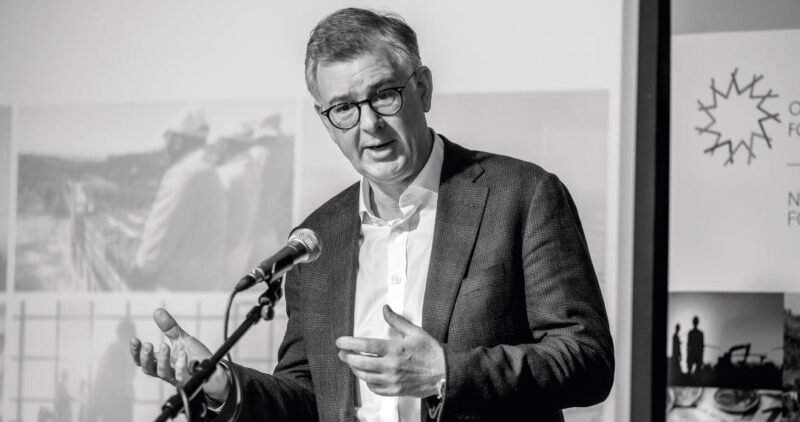
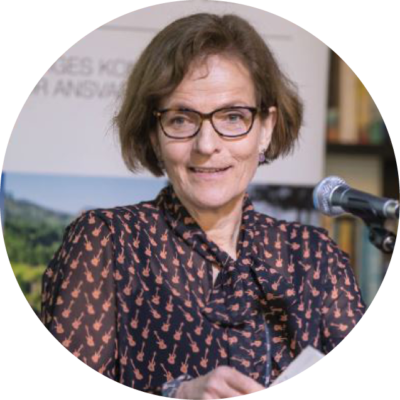
‘The goal must be the best possible business sector, not necessarily the highest number of complaints,’ said Katarina Sætersdal of NHO.
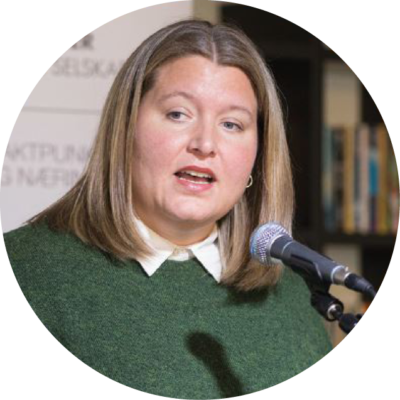
‘It is important that civil society has a place at the negotiation table together with the businesses, and not only in demonstrations outside,’
said Ingrid Rostad from ForUM.
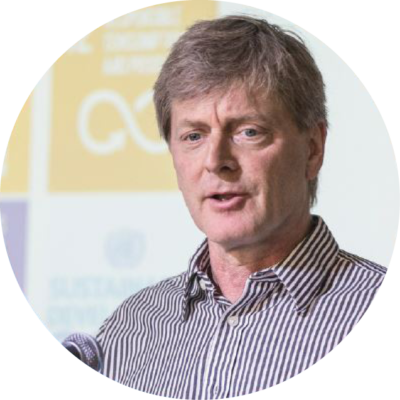
‘It’s impossible to solve problems without talking to the people at the grassroots level doing the dirty work.
The workers must be involved,’ said Atle Høie of IndustriAll.
External activities
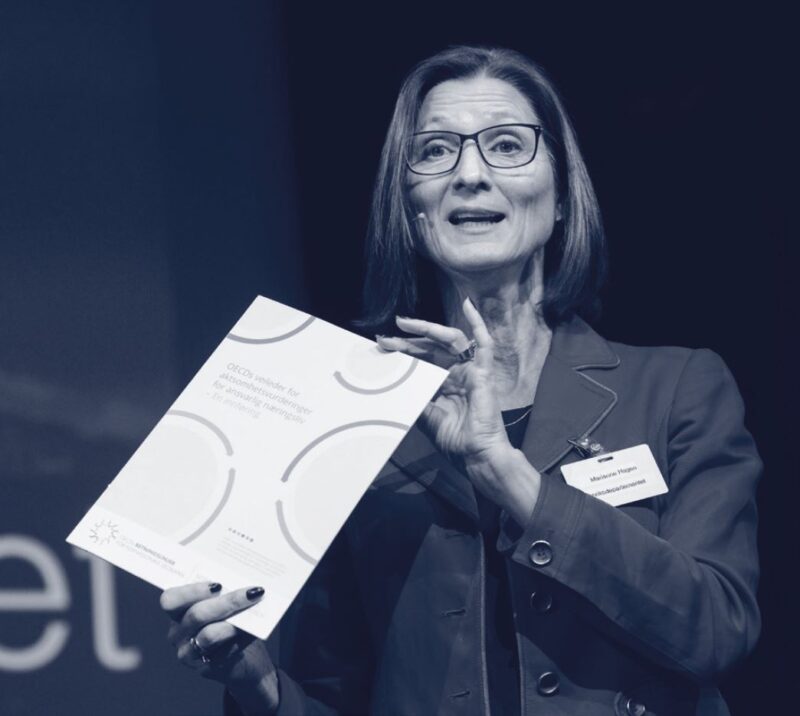
State Secretary Marianne Hagen launched the NCP’s practical introduction to the OECD Due Diligence Guidance for Responsible Business Conduct to members of the Confederation of Norwegian Enterprise (NHO).
Hagen encouraged all businesses and affected stakeholders to actively use the guidance document. Minister of Foreign Affairs Ine Eriksen Søreide and Minister of Trade and Industry Torbjørn Røe Isaksen have written the preface to the Norwegian brief guide. They underline that Norwegian authorities expect Norwegian companies to be familiar with and comply with the OECD Guidelines for Multinational Enterprises and to perform due diligence.
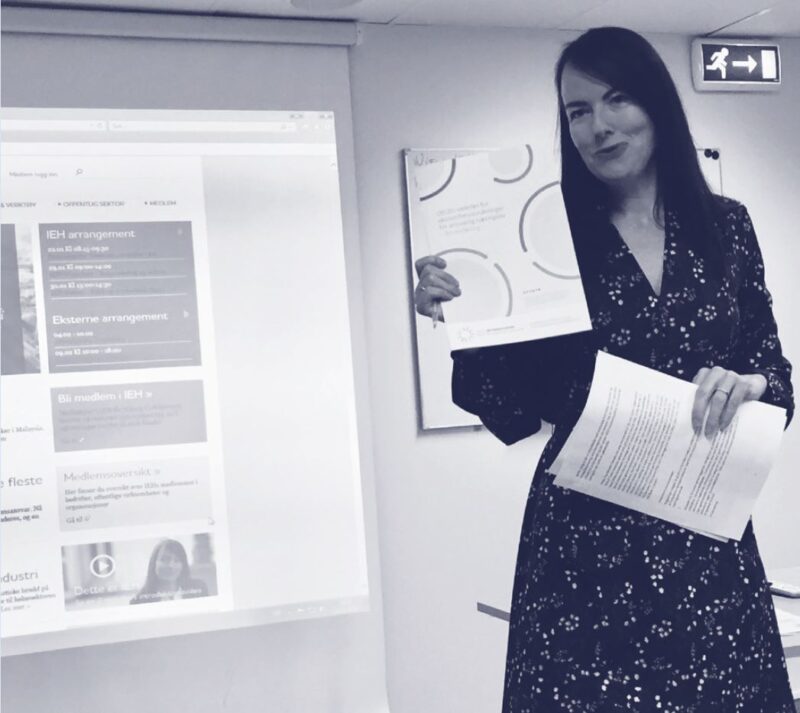
In cooperation with Norway’s NCP, Ethical Trade Norway invited participants to a breakfast meeting where Frode Elgesem provided a practical introduction to how the business sector can perform due diligence to prevent causing harm to people, society and the environment.
‘Many Norwegian businesses want to demonstrate responsible business conduct, but can find it challenging in practice. The NCP has developed a brief, practical Norwegian-language introduction to the OECD Due Diligence Guidance in cooperation with key Norwegian stakeholders in order to increase its relevance to all types of businesses,’ says Elgesem.
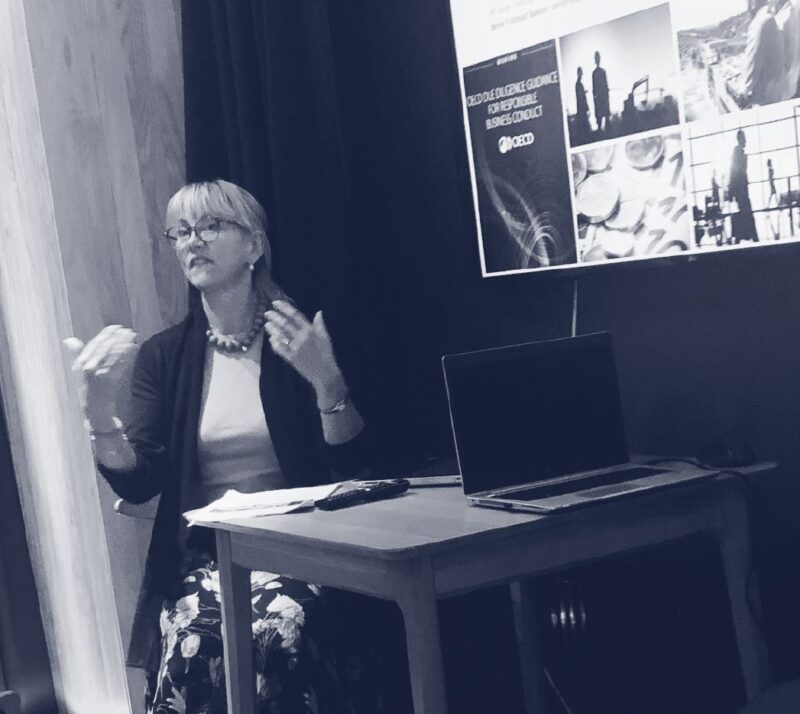
Norway’s NCP gave the introductory talk about the OECD Guidelines and due diligence at the organisation HR Norge’s members’ meeting in Ålesund. The Kongsberg group, Sparebanken Møre and Ålesund municipality talked about how they define their role, and how they set goals and work on CSR. The NCP showed how the OECD Guidelines are relevant to the HR function by demonstrating how responsible business conduct and respect for human rights can be integrated in the different business areas of a company. A number of research reports, including Academic Work’s labour market report, show that young graduates place more importance on CSR than have previous generations. Sustainability, a good working environment and career opportunities are at the top of the wish list. This means that, in order to attract qualified top candidates, companies should clearly demonstrate how they work on responsible business conduct.
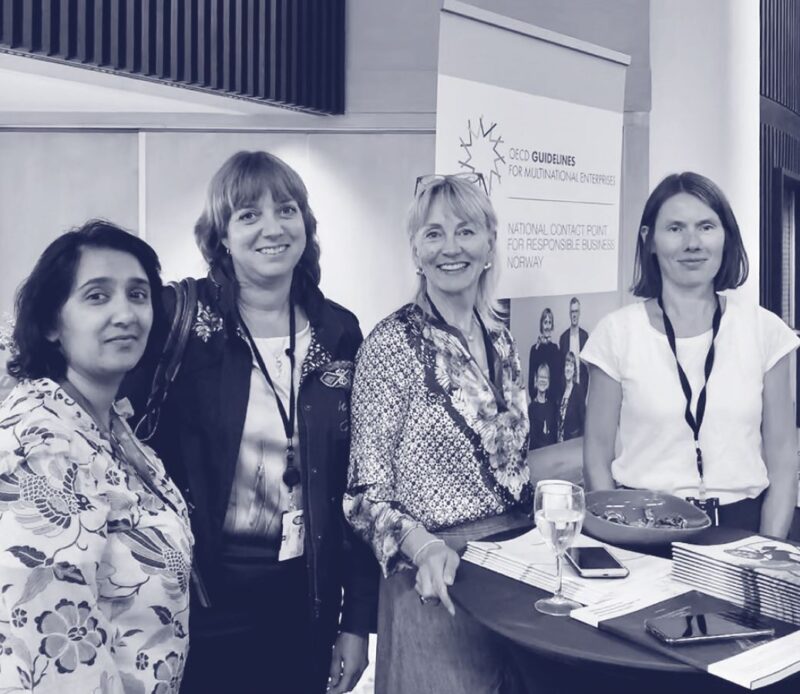
Norway’s NCP and the secretariat engage in extensive information activities throughout the year to promote responsible business conduct and the NCP system at seminars, conferences, meetings and stands. In 2019, the NCP organised nine events either alone or together with other organisations. The focus has been on responsible business conduct and due diligence, indigenous rights and knowledge sharing between Norway’s NCP and the other Nordic NCPs.
The NCP has given the introductory talk at sixteen events organised by others. Focus on responsible business conduct, due diligence and the UN Guiding Principles for Business and Human Rights have been recurring topics. On average, between fifteen and twenty participants from civil society, business and industry, academia and the public authorities have attended these events.
FOKUS – the Forum for Women and Development has developed a digital tool for bringing the gender perspective into due diligence. The tool has been named ‘SheDil’. The gender perspective is integrated in the OECD Due Diligence Guidance for Responsible Business Conduct and in most of the OECD’s sectoral guidance documents. The guidance documents exemplify how the gender dimension can be integrated in due diligence.
The secretariat took part in a demonstration and pilot launch of the tool along with a number of other participants invited to the launch, including the oil company Hydro. The NCP welcomes the new tool and has provided feedback on the pilot to enable even better adaptation of the tool to the OECD’s due diligence methods.
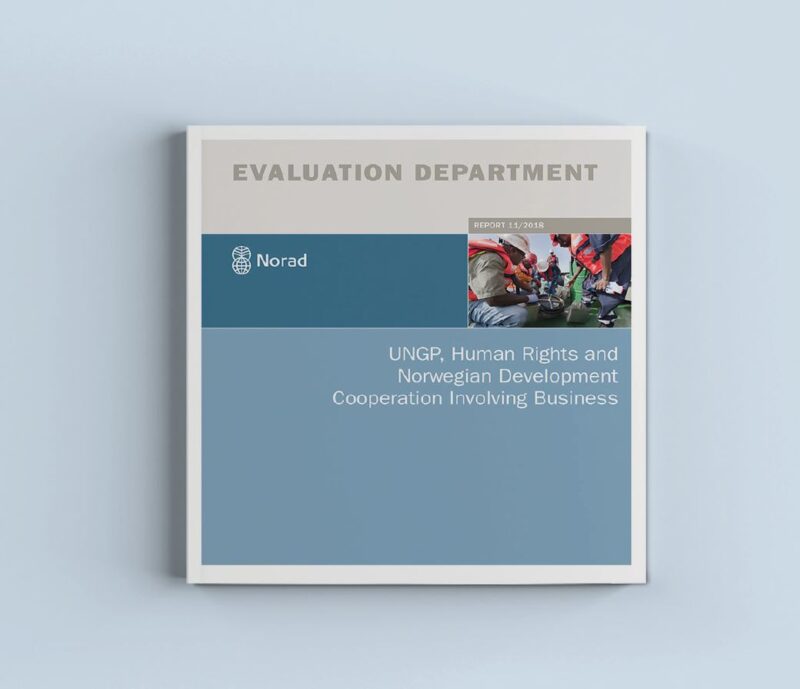
Businesses have called for helpful advice on responsible business conduct and risk assessments from Norwegian foreign service missions. In 2018, the Norwegian Agency for Development Cooperation (Norad) conducted an evaluation of human rights and Norwegian development work that involves business and industry. The evaluation recommended improving systems, expertise and resources, and to specify expectations of and responsibility for implementing the UNGPs in development cooperation involving the business sector. In 2019, the Ministry of Foreign Affairs prepared a follow-up plan for the recommendations in this evaluation. The follow-up includes increasing the foreign service missions’ expertise in responsible business conduct and guidance of Norwegian companies in countries with which Norway collaborates, for example through the use of an e-learning course.
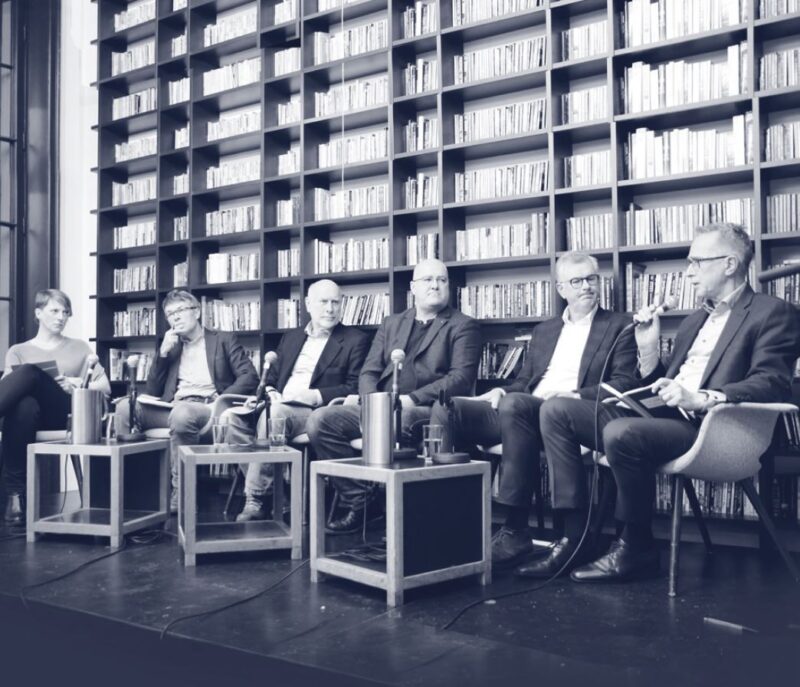
The Energethics research group at the University of Bergen has looked at how Norwegian businesses handle CSR abroad and their dilemmas related to sustainability and value creation. This formed the basis for two panel debates in Bergen and Oslo organised by the research group. Three cases involving the energy companies Statkraft, Equinor and DNO were presented.
Norway’s NCP referred to the new white paper on state ownership policy, which clearly states that Norwegian companies must lead the field in responsible business conduct and that this is a precondition for profitable operations in the long term.
